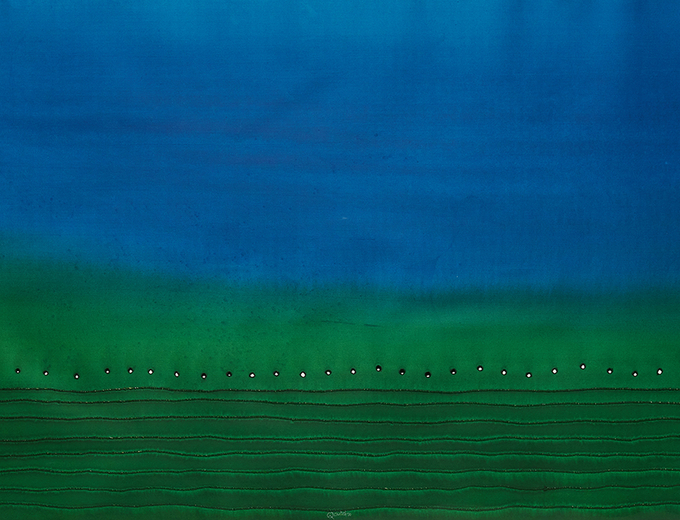
Sundaram Tagore Gallery II presents new works by artist, poet and Tantric guru Sohan Qadri. Known for tableaus of luminous colors that recall the lush palette of India, Qadri's work abandons representation in search for transcendence. Raised part Hindu, and part Sikh, the artist was also involved with Sufism. Thus, his art is informed by this spiritual journey, and particularly by his practices as a Vajrayana Buddhist and yogi. His paintings are monochrome surfaces with structural effects that, in their repetition, convey the rhythmic expressions of color energies. The art critic and scholar Donald Kuspit wrote of Qadri, " he is the pre-eminent aesthetic mystic of modernism." This exhibition is on view from December 14 through the 28th.
Qadri was born in Punjab, India in 1932, and has resided in Copenhagen, Denmark for almost thirty years. At age seven, he was initiated into yogic practice; as a teenager, he ran away to a Tibetan Buddhist monastery in search for a higher truth. After graduating from the Simla College of Art in India in the mid-1960s, Qadri became part of the circuit of the Indian modernists that included M.F. Husain, Syed Haider Raza, Ara, Ram Kumar and Sailoz Mookherjee.
"When I start on a painting, first I empty my mind of all images. They dissolve into primordial space. Only emptiness, I feel, should communicate with emptiness of the canvas," Qadri once said. Though he started out painting in the impasto style using oil and acrylic on canvas and board, he discovered his spiritual medium in inks and dyes. He uses Van Guelder paper – a heavy paper used for intaglio printing – and treats it to create a consistency ideal for ink and dye dispersion.
Sohan Qadri has interacted with a wide array of renowned cultural figures over his long career, including the Surrealist painter René Magritte, the architect Le Corbusier and Nobel Laureate Heinrich Böll, who became one of his most important proponents. He has had more than 50 exhibitions across the United States, Europe, Asia and Africa.


















